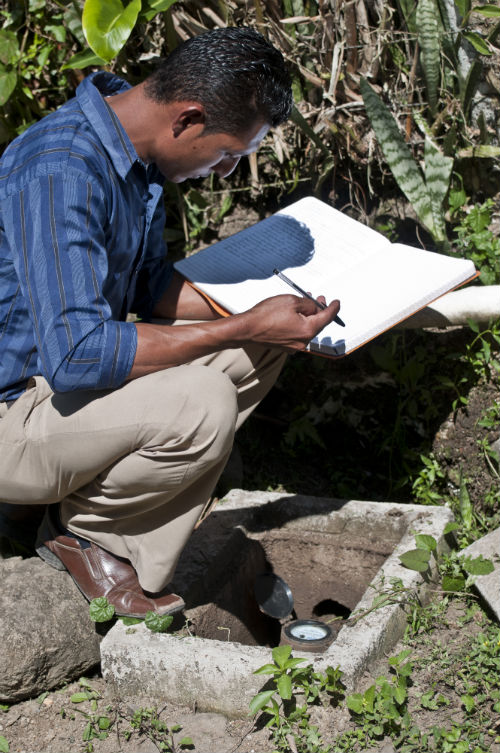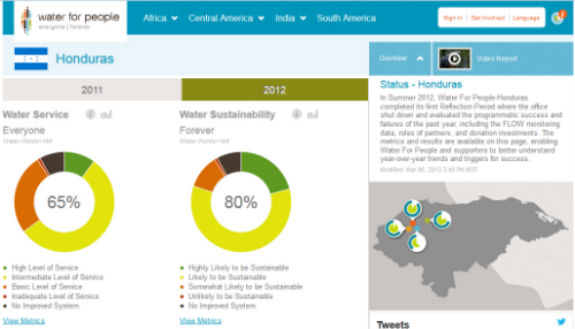
I have a water meter at my home. I'm pretty sure it's out by the front steps. I never think about it. I know that it measures how much water I use. Then I get a monthly bill from my water utility. Fair enough. I use the water and pay for it.
I'm shocked sometimes how much water I use. I'm embarrassed. I won't tell you. But because I know, I'm motivated to use less, so I can pay less, but also so that I can conserve more.
Whoops, there's a faucet dripping. Do I really need to do run the dishwasher that often? How about cutting back on watering the lawn?
Brilliant.
So brilliant that I never thought about how water meters can inspire the same behavior change in developing countries.
I work for Water For People. We're a small nonprofit, a handful of people dedicated to bringing safe water and sanitation services to entire districts in 10 countries around the world. One of those countries is Honduras. It was here in a small town located in the department of Santa Barbara, that I began to ponder the power of the humble water meter.
 Water meters assure residents in Honduras are paying an equitable amount for their water compared to their neighbors.
Water meters assure residents in Honduras are paying an equitable amount for their water compared to their neighbors.
While visiting our program there, I learned that this little device caused a ruckus when it was first introduced. It's because residents thought of water as a right, not something you have to pay for; they were use to walking to the nearest spring and getting water for free. But it was a hike that was needed up to six times a day to carry enough water back home for cooking, cleaning and washing. And the water wasn't good, and it often made people sick.
But opinions changed when they got their new water system; people realized that by paying a small tariff the community could put money in the bank for fixing, expanding, and replacing their water system. Add it meant that they could pay for trained plumbers to fix the system if something broke. Reliable, convenient, safe water. Turns out that people really don't mind paying for that.
Water meters also assured that residents were paying an equitable amount for their water compared to their neighbors. And because people watch how much water they use, it results in more careful use and enough water even during the dry seasons.
Brilliant.
Water For People believes water meters are an integral part of its work around the world. Why? Because encouraging the use of water meters means we are practicing a fundamentally different approach to solving a water crisis that leaves two in seven people -- 1.8 billion people worldwide --without access to safe drinking water.
International development organizations historically define success as reaching as many people as possible -- "beneficiaries" -- with the water they need to survive. This is great in theory, as it reduces the number of people who live without this basic resource. However, in practice we see a different story -- well-meaning but short-lived projects that eventually fail as water systems age and become no longer viable as no one knows how to maintain them, and especially no funds to replace them without the intervention of yet another aid organization.
Defining success as reaching more and more people is the wrong approach; it only provides a temporary, one-off solution to get people the water they need for a short time -- not a permanent solution that will last for generations.
Instead, Water For People has a different goal, defining success as reaching everyone with water -- forever. This means that water keeps flowing every day and indefinitely for every household, every school, and every health clinic.

That takes money. Who will operate and maintain the systems? Who will pay for this? And who will pay to expand and/or replace the system one day?
These are the questions we ask in all of our programs. Water meters help provide the answers and prepare communities to meet those challenges without further international aid.
Brilliant.
I think I'll go give my water meter a hug.
Erin Wright is the International Programs Communications Officer at Water For People.